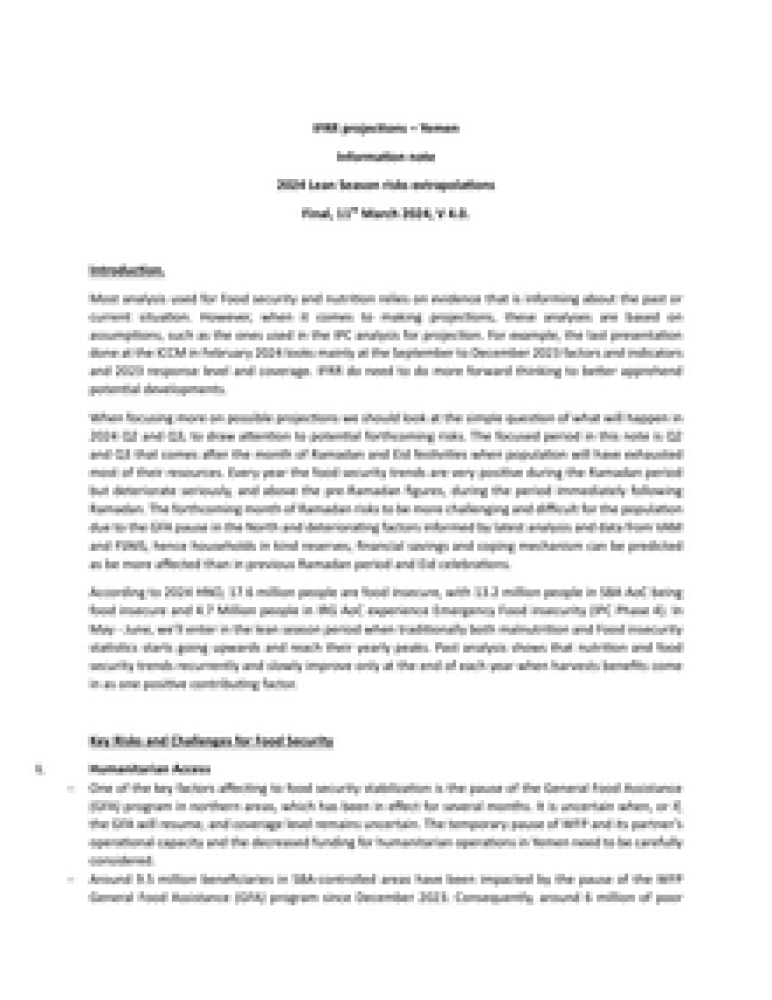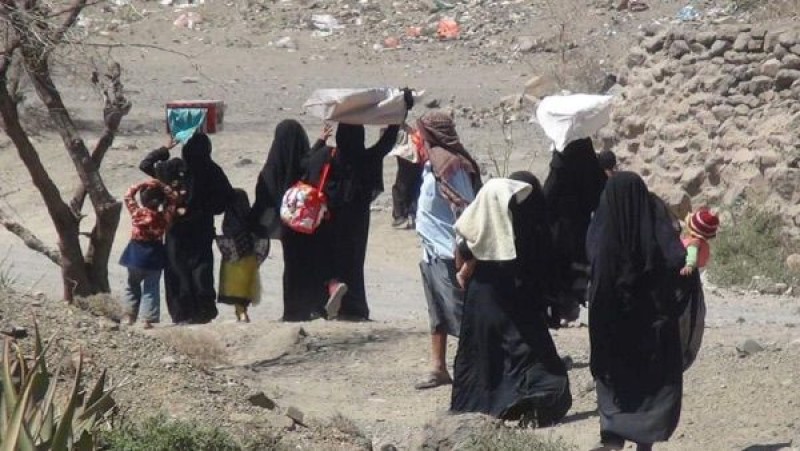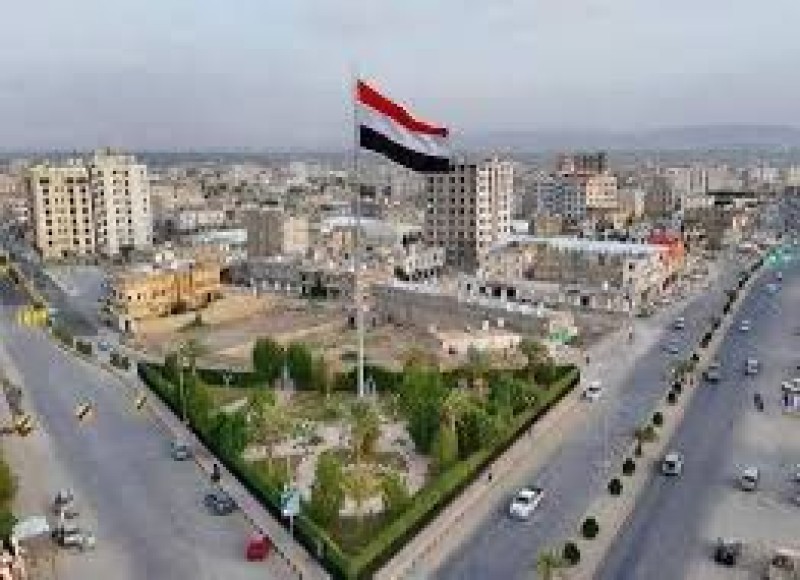IFRR projections – Yemen - Information note 2024 Lean Season risks extrapolations


Introduction
Most analysis used for Food security and nutrition relies on evidence that is informing about the past or current situation. However, when it comes to making projections, these analyses are based on assumptions, such as the ones used in the IPC analysis for projection. For example, the last presentation done at the ICCM in February 2024 looks mainly at the September to December 2023 factors and indicators and 2023 response level and coverage. IFRR do need to do more forward thinking to better apprehend potential developments.
When focusing more on possible projections we should look at the simple question of what will happen in 2024 Q2 and Q3, to draw attention to potential forthcoming risks. The focused period in this note is Q2 and Q3 that comes after the month of Ramadan and Eid festivities when population will have exhausted most of their resources. Every year the food security trends are very positive during the Ramadan period but deteriorate seriously, and above the pre-Ramadan figures, during the period immediately following Ramadan. The forthcoming month of Ramadan risks to be more challenging and difficult for the population due to the GFA pause in the North and deteriorating factors informed by latest analysis and data from VAM and FSNIS, hence households in kind reserves, financial savings and coping mechanism can be predicted as be more affected than in previous Ramadan period and Eid celebrations.
According to 2024 HNO, 17.6 million people are food insecure, with 13.2 million people in SBA AoC being food insecure and 4.7 Million people in IRG AoC experience Emergency Food insecurity (IPC Phase 4). In May - June, we’ll enter in the lean season period when traditionally both malnutrition and Food insecurity statistics starts going upwards and reach their yearly peaks. Past analysis shows that nutrition and food security trends recurrently and slowly improve only at the end of each year when harvests benefits come in as one positive contributing factor.

Aden — The International Organization for Migration (IOM) reported that more than 24,000 people have been internally displaced in Yemen since…

MARIB — Security sources reported that police in Marib governorate have opened investigations into two separate suicide incidents that occurr…

Hodeidah — Two members of the Iranian-backed Houthi militia were killed and five others wounded in a landmine explosion near Hodeidah airport…